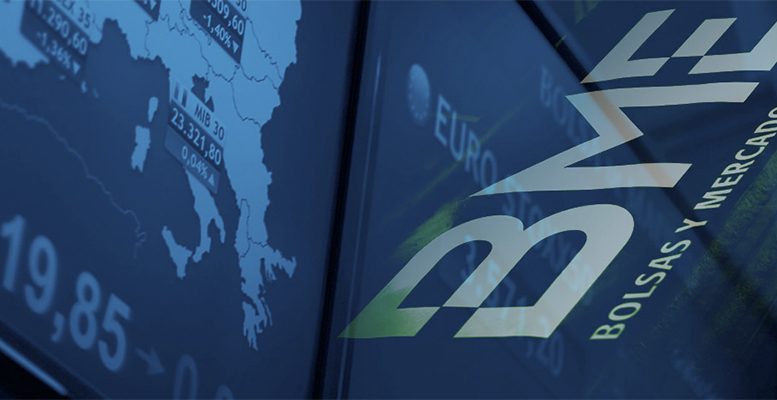The 2018 results of Spanish Stock Markets (BME) show a certain slowdown in the growth of income and an erosion of profits. In Q418 it stalled. Income fell -0.5% to 78.8 million euros while operating costs grew +7.2% to 30.5 million euros.
The Ebitda margin fell from 64.1% in Q417 to 61.3% in Q418. The accumulated net profit fell -6% to 34.8 million euros.
In accumulated terms in 2018, income reached 312.9 M€ (-3.7%) compared to the expected 303.5 M€, Ebitda 186.1 M€ (-11.3%) compared to the expected 185.8 M€ and accumulated net profit 136.3 M€ compared to the expected 135.9 M€. The Ebitda margin fell from 65.6% in 2017 to 61.3%.
For analysts at Bankinter, the results are in line with the consensus forecasts, which confirm a certain slowdown in the deceleration of incomes and the deterioration of margins:
In October 2018 BME presented a new Strategic Plan, which seeks to relaunch growth in BME incomes, which have maintained a downward trend since 2015 (18 consecutive quarters), in an environment of decreasing volumes of contracts and growing competition from alternative contracting platforms.
BME offers an attractive valuation from an historical perspective and versus comparable companies (PER 19 of 15.1X compared to an average of 18.0X for Deutsche Börse, Euronext and LSE).
They also believe that the loss of market share to other platforms will already be minimal and the likely increase in volatility will improve the volumes of contracting.
The return on dividend is attractive and sustainable and the business plan will contribute a valuation plus if it is carried out successfully.
On the negative side weighs the risk of the application of the tax on financial transactions, which will impose a charge of 0.2% on operations buying Spanish shares. The current government approved this tax in October 2018 when it included it in the Budget law and its normative development and application will depend on the result of the forthcoming general elections. In the worst case scenario, Bankinter estimate an impact on BME’s accumulated net profit of -6%/-9% per year.
Moreover, BME has announced that it will reduce tariffs to attract volume. It will lower the charge on the most liquid shares (those whose floating capital exceeds 10 billion euros) from 0.30 to 0.25 bp for intermediaries who meet a series of requirements and fix the charge for shares with a floating capital between 3/10 billion euros at 0.60 bp. The objective is to confront the competition from alternative platforms which have acquired 30% of market share in recent years and to consolidate its position in the most liquid market in which it performs best. BME expects to compensate for the reduction of tariffs with an increase in market share, capturing the operations of liquidity providers who execute operations through algorithms.
In 2019 the company is also reducing the tariffs for emissions of fixed income to 50%. These measures fit in with the new Strategic Plan, which BME presented in October 2018 and which seeks to relaunch a growth in incomes.





